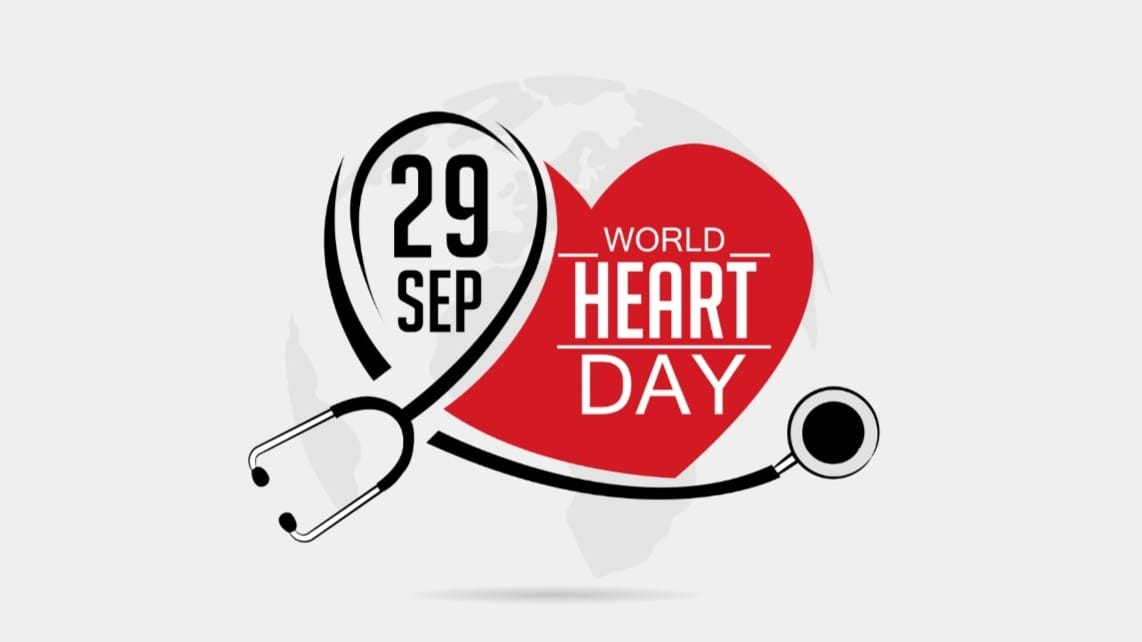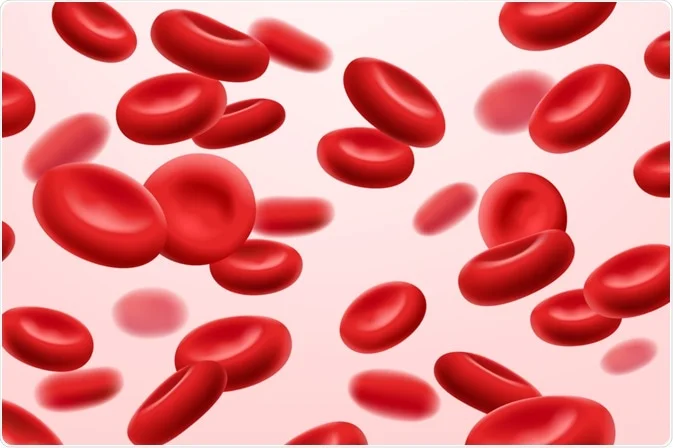World Heart Day, observed annually on September 29, serves as a global campaign to raise awareness about cardiovascular diseases (CVD), their prevention, and the importance of heart health. Spearheaded by the World Heart Federation (WHF), this day unites people, organizations, and governments to spread critical information about heart disease while encouraging lifestyle changes to improve cardiovascular well-being. In 2024, with the theme of “Use Heart, Know Heart,” World Heart Day underscores the personal responsibility each of us holds in maintaining heart health and ensuring long-term wellness.
What is World Heart Day and Its Significance?
World Heart Day was established in 2000 as a platform to drive awareness of the global burden of heart disease and stroke. Cardiovascular diseases are the leading cause of death globally, claiming approximately 18 million lives each year, according to the WHO. Many of these deaths are preventable through education, better awareness, and access to healthcare.
The significance of this day lies in its worldwide reach. Governments, healthcare professionals, and NGOs unite to inform the public of the risk factors, symptoms, and treatments for heart diseases. Events such as health checks, marathons, educational seminars, and digital campaigns are designed to inspire people to take proactive steps toward healthier hearts.
Why is Heart Health So Important?
The heart, a vital organ, is the engine of the human body. It pumps oxygen-rich blood to all parts of the body, fueling organs, tissues, and cells to function optimally. When the heart suffers, the entire body is at risk. Heart diseases can affect anyone, from infants born with congenital heart defects to adults suffering from lifestyle-related cardiovascular problems.
Heart health has a direct impact on individual well-being. Maintaining a healthy heart prevents life-threatening conditions such as heart attacks, strokes, and heart failure. Additionally, a strong cardiovascular system contributes to physical fitness, energy levels, cognitive function, and mental health.
In the larger context, the economic burden of heart disease on individuals and healthcare systems is enormous. Medical treatments, hospitalizations, and medications contribute to rising healthcare costs, while lost productivity from heart disease-related deaths impacts families and communities.
Major Risk Factors Contributing to Heart Disease
Several factors increase the likelihood of developing heart disease. While some risk factors, such as age and genetics, are non-modifiable, many lifestyle-related risks are preventable or manageable. The major risk factors include:
- High blood pressure (hypertension): Excessive pressure on artery walls can lead to heart damage.
- High cholesterol: Cholesterol buildup in the arteries restricts blood flow to the heart.
- Smoking: Tobacco chemicals damage the heart and blood vessels, increasing the risk of atherosclerosis.
- Diabetes: Elevated blood sugar levels damage blood vessels, contributing to heart disease.
- Physical inactivity: A sedentary lifestyle contributes to obesity, high cholesterol, and hypertension.
- Obesity: Excessive weight puts strain on the heart and increases the risk of other risk factors.
- Unhealthy diet: Diets high in salt, trans fats, and processed foods lead to hypertension and cholesterol problems.
- Excessive alcohol consumption: Overindulgence in alcohol can raise blood pressure and contribute to heart damage.
- Stress: Chronic stress increases blood pressure and heart rate, elevating the risk of heart disease.
Also, read about 10 Superfoods to include in your diet
Tips for Preventing Heart Disease
- Adopt a heart-healthy diet: Focus on whole grains, fruits, vegetables, lean proteins, and healthy fats while limiting salt, sugar, and processed foods.
- Exercise regularly: Aim for at least 150 minutes of moderate-intensity aerobic activity per week.
- Quit smoking: Avoid tobacco in all forms, and seek professional help to quit if necessary.
- Monitor blood pressure and cholesterol: Regular check-ups help detect early warning signs.
- Maintain a healthy weight: Balance caloric intake with physical activity.
- Manage stress: Practice mindfulness, yoga, or relaxation techniques to reduce stress.
- Limit alcohol: Stick to moderate drinking guidelines or abstain altogether.
Recognizing the Symptoms of Heart Disease
Heart disease manifests through various symptoms, which can range from mild discomfort to life-threatening conditions. Recognizing the early signs is key to timely intervention and treatment. Common symptoms include:
- Chest pain or discomfort (angina): A pressure, tightness, or pain in the chest.
- Shortness of breath: Difficulty breathing during physical activity or at rest.
- Fatigue: Unexplained tiredness or weakness.
- Heart palpitations: Rapid or irregular heartbeat.
- Swelling in the legs, ankles, or feet: Caused by fluid retention due to heart failure.
- Dizziness or fainting: A potential sign of an abnormal heart rhythm or blood flow issue.
Diagnosing heart disease typically involves a combination of physical exams, patient history, blood tests, and diagnostic imaging such as electrocardiograms (ECG), echocardiograms, stress tests, or cardiac catheterizations.
Latest Advancements in Heart Disease Treatment
Medical science has made significant strides in the treatment of heart disease. The following are some of the latest advancements:
- Transcatheter Aortic Valve Replacement (TAVR): A minimally invasive procedure to replace a damaged heart valve without the need for open-heart surgery.
- Wearable technology: Devices like smartwatches equipped with ECG monitoring help detect arrhythmias and other heart irregularities in real time.
- Artificial intelligence (AI) in diagnosis: AI algorithms assist doctors in identifying heart disease with greater accuracy by analyzing large datasets from imaging, tests, and health records.
- Gene therapy: Targeted genetic treatments are being developed to repair damaged heart tissue or correct genetic defects that contribute to heart disease.
- Improved drug therapies: New medications, such as PCSK9 inhibitors, show promise in significantly lowering LDL cholesterol levels and reducing heart disease risks.
These advancements not only improve survival rates but also offer patients better quality of life and reduced recovery times after procedures.
Supporting Heart Health Initiatives
Supporting heart health initiatives requires collective effort at various levels:
- Government policies: Advocating for health policies that promote heart-healthy lifestyles, such as banning trans fats, reducing salt in processed foods, and providing public spaces for physical activity.
- Community programs: Encouraging local fitness events, free health screenings, and educational campaigns about heart health.
- Workplace wellness: Businesses can support heart health by creating stress-free environments, promoting fitness programs, and offering healthy cafeteria options.
- Individual contributions: People can contribute by making personal lifestyle changes, participating in heart health events, and spreading awareness in their communities.
The Role of Healthcare Professionals in Heart Health
Healthcare professionals play a critical role in promoting heart health through prevention, diagnosis, and treatment. Cardiologists, general practitioners, dietitians, and nurses work together to offer patient-centered care aimed at lowering the risk of heart disease. From educating patients about risk factors to performing life-saving surgeries, their expertise and dedication save countless lives.
Additionally, healthcare professionals lead research in developing new treatments, improving patient outcomes, and raising awareness of heart health through public outreach and professional organizations like the World Heart Federation.
Improving Heart Health in Developing Countries
Heart disease is a global issue, with developing countries disproportionately affected due to limited access to healthcare, rising rates of urbanization, and unhealthy lifestyle habits. Solutions to improve heart health in these regions include:
- Expanding access to healthcare: Strengthening primary care services and ensuring that rural areas have the resources to prevent and treat heart disease.
- Health education: Implementing community-based programs that teach the importance of heart health, healthy diets, and physical activity.
- Affordable medications: Reducing the cost of essential medications like statins and blood pressure drugs, which are often out of reach for low-income populations.
- International collaboration: Global organizations can partner with local governments to implement heart health initiatives and provide necessary funding and training.
Future Directions in Heart Health Research and Treatment
The future of heart health research looks promising, with emerging trends focusing on personalized medicine, digital health solutions, and innovative therapies:
- Genomics and precision medicine: By understanding individual genetic profiles, doctors can tailor treatments to a person’s specific heart health needs, leading to better outcomes.
- Telemedicine: Virtual care has gained momentum, allowing heart disease patients to access expert advice and routine check-ups from the comfort of their homes.
- Regenerative medicine: Researchers are exploring ways to repair or replace damaged heart tissue through stem cell therapy and tissue engineering.
Conclusion
World Heart Day 2024 is a reminder of the crucial role that heart health plays in our lives. By raising awareness, educating the public, and supporting innovative treatments, we can collectively reduce the burden of heart disease. Whether it’s through personal lifestyle changes or global health initiatives, each of us can contribute to a healthier future where heart disease becomes a preventable and manageable condition. Use this World Heart Day as an opportunity to check your heart health, inspire others, and take proactive steps toward a heart-healthy life.
Join Cure and Craft:
Calling all healthcare professionals, medical students, and writers! Share your insights, experiences, and knowledge on our platform. Let’s craft informative articles together, shaping the future of healthcare. Connect, inspire, and enlighten our audience.





